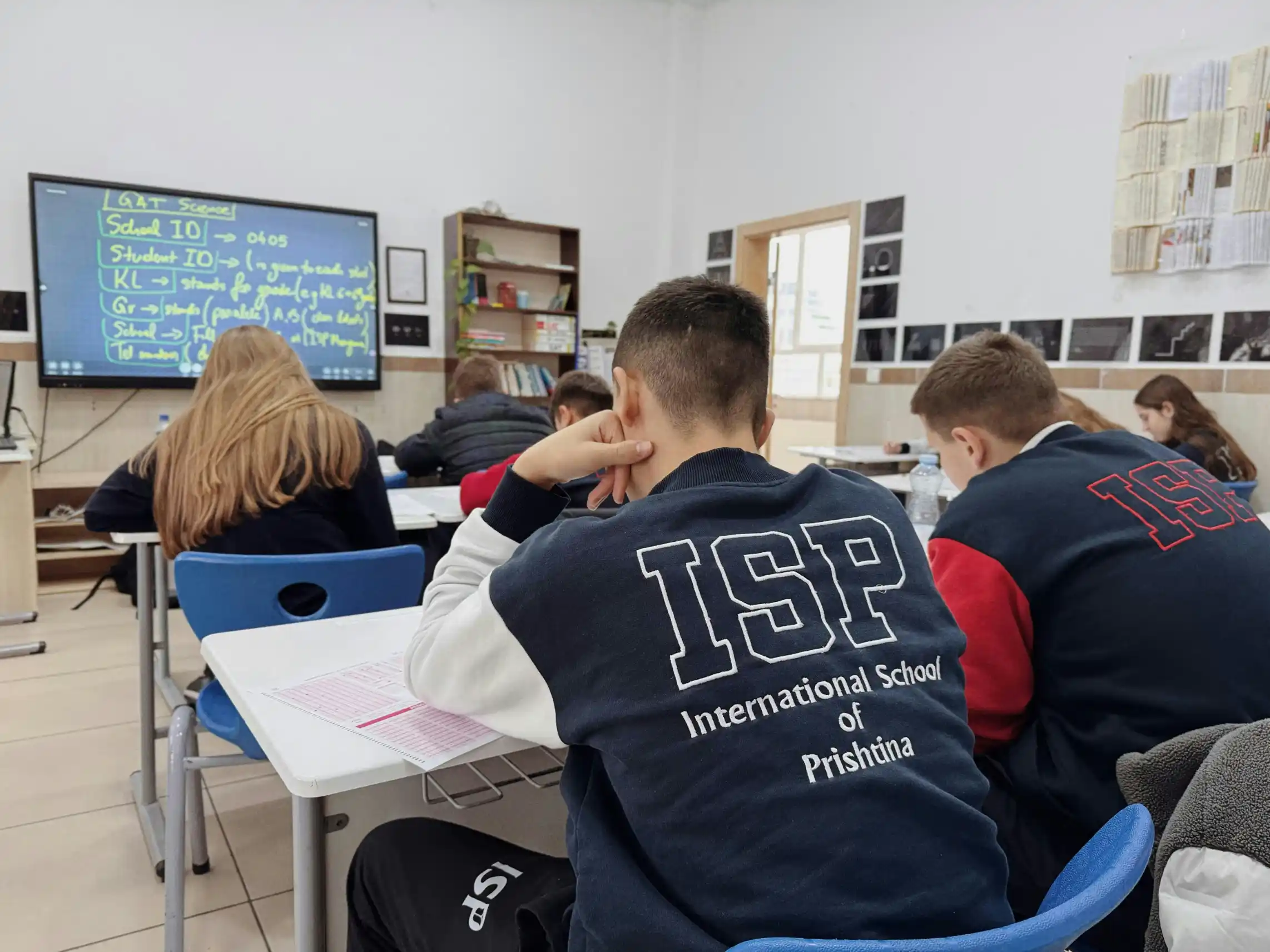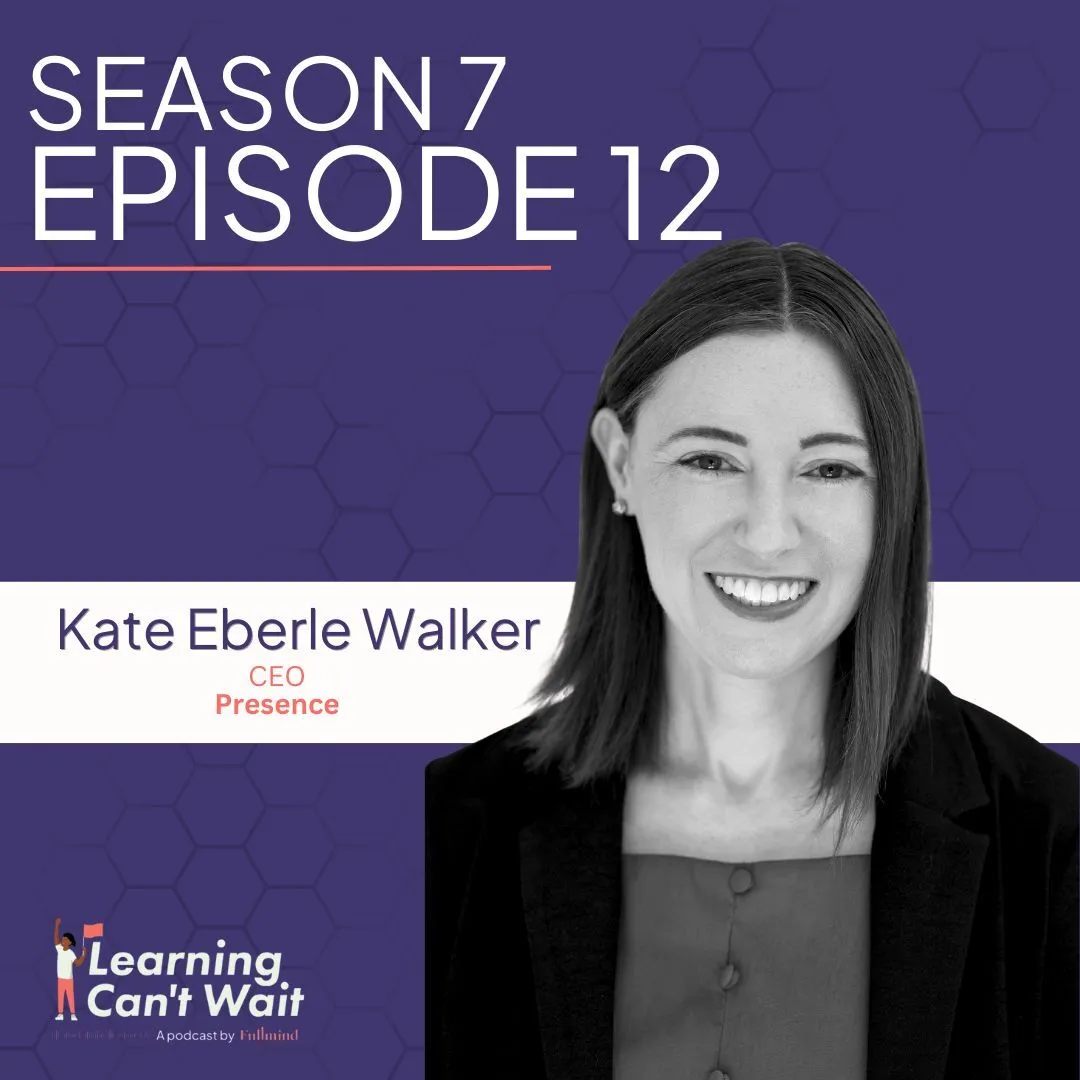For Education Leaders
Get proven strategies and expert analysis from the host of the Learning Can't Wait podcast, delivered straight to your inbox.
Virtual Staffing
Fill Teacher Vacancies in Days
- State-certified experts averaging 15+ years experience
- Fully aligned to your curriculum & standards
- Scalable, cost-effective hybrid solutions
How to Find the Best Teacher Staffing Agency

Nationwide, school administrators are facing an unprecedented teacher staffing crisis. According to the National Center for Education Statistics, about 45% of public schools reported teaching vacancies at the beginning of the 2022-2023 school year, with over half citing the shortage due to resignations and retirements (NCES, 2023). This challenge has led many educational leaders to seek innovative solutions beyond traditional hiring practices.
A teacher staffing agency serves as a strategic partner for schools and districts, helping them find and place qualified educators in temporary and permanent positions. While traditional staffing agencies focused on placing substitute teachers and administrative staff, the landscape has evolved. Modern teacher staffing agencies, particularly virtual providers, offer solutions ranging from live online instruction to specialized support services to maintain educational continuity and excellence despite staffing challenges.
This guide will help K-12 administrators understand the evolving role of teacher staffing agencies, including virtual staffing providers, recognize their benefits, and identify the criteria to select the best staffing partner for your school or district's needs.
Why Consider a Teacher Staffing Agency
The education sector faces a perfect storm of factors making traditional staffing models unsustainable. The teacher shortage has reached critical levels in many regions, with STEM, special education, and foreign language positions difficult to fill. A 2022 Economic Policy Institute survey found nearly 80% of districts reported hiring difficulties for these areas, a 15% increase from pre-pandemic levels. Many schools are turning to certified online teaching solutions to bridge these staffing gaps.
Budget constraints complicate the picture, as many districts can’t offer competitive salaries to attract specialized talent. Meanwhile, the post-pandemic educational landscape has introduced new demands: addressing learning recovery, supporting students with increased social-emotional needs, and maintaining smaller class sizes. Schools need specialized expertise and scheduling flexibility that traditional hiring models often can’t provide.
The growing acceptance of virtual learning has opened new possibilities. Virtual teacher staffing solutions allow schools to access a nationwide talent pool rather than being limited to local candidates. This approach is valuable for rural districts facing recruitment challenges and schools needing specialized instructors for low-enrollment courses or specific student populations.
The need for agility in staffing has never been greater. Today's schools must cover unexpected leaves, manage fluctuating enrollments, launch intervention programs, and provide specialized services for diverse learner needs, all while maintaining instructional quality and continuity. Teacher staffing agencies have evolved to address these complex, dynamic challenges.
What Does a Teacher Staffing Agency Offer?
A teacher staffing agency connects schools with vetted, qualified educators. However, modern agencies, particularly those focused on virtual services, go beyond matchmaking. They deliver comprehensive instructional solutions, integrating technology platforms, curriculum resources, and ongoing support services for successful outcomes.
Traditional staffing agencies focus on local, in-person placements. They handle recruitment, screening, and sometimes payroll or HR functions for substitute teachers or long-term placements. In contrast, virtual providers maintain a broader geographic reach, connecting schools with certified online teachers who deliver live instruction and support services remotely. These models integrate proprietary technology platforms for educational delivery and student engagement.
Today's teacher staffing agencies offer diverse services tailored to school needs, including:
- Long-term virtual teacher placements for hard-to-fill positions
- Short-term coverage for teacher absences or leaves
- Specialized instruction for Students With Disabilities (SWD) and Individualized Education Program (IEP) fulfillment
- High-dosage tutoring programs for targeted intervention
- Homebound instruction for medically fragile students
- Credit recovery programs to support graduation rates
- Advanced Placement courses or specialized elective courses
- Bilingual education and English Language Learner support
Benefits of Partnering with a Quality Teacher Staffing Agency
Strategic partnerships with teacher staffing agencies offer advantages beyond filling vacancies. When schools select the right partner, they access resources and capabilities that transform their staffing approach.
- Access to a Wider Talent Pool: Agencies, especially those with virtual capabilities, can tap into national networks of certified teachers. This connects schools with specialized expertise regardless of location.
- Flexibility and Scalability: Schools can quickly adjust staffing based on enrollment fluctuations, launch time-limited programs without permanent hires, or pivot resources to address emerging student needs.
- Specialized Expertise: Access teachers with specific certifications and experience in high-need areas like Special Education, Advanced Placement, STEM, and bilingual education without the challenges of direct recruitment.
- Reduced Administrative Burden: Agencies handle recruitment, vetting, credentialing verification, and initial screening, freeing administrative time for other priorities while ensuring qualified candidates.
- Ensuring Instructional Continuity: Minimize learning disruptions from vacancies or absences with rapid deployment of qualified educators to maintain curriculum progression.
- Potential Cost-Effectiveness: Agencies offer budget flexibility through various engagement models, such as part-time specialists to full-time virtual teachers, without long-term salary and benefit commitments.
- Compliance & Quality Assurance: Reputable agencies ensure teachers meet certification, background check, and qualifications requirements, reducing compliance risks for schools.
How to Choose the Best Teacher Staffing Agency
Finding the "best" teacher staffing agency depends on your school's needs, budget, and circumstances. Certain quality indicators are universal. When evaluating partners, consider these critical factors:
Teacher Quality, Certification, and Vetting
The most important criterion when selecting an agency partner is the quality of educators. Request detailed information about the agency's teacher recruitment and vetting processes. Do they verify state certifications and conduct thorough background checks? What are the typical experience levels and qualifications of their teachers?
Ask about their subject matter expertise in your areas of need. For virtual providers, inquire about teacher training and support in online instruction. The best agencies provide ongoing professional development to ensure certified virtual educators maintain content knowledge and effective instructional practices.
Range and Flexibility of Services Offered
Evaluate if an agency can address your staffing challenges across subjects, grade levels, and student populations. Consider immediate and future needs. Can they support elementary, middle, and high school levels? Do they offer specialized services like SWD services and IEP fulfillment?
The most valuable partners demonstrate flexibility in service delivery. They can accommodate different engagement durations from daily substitute coverage to year-long placements. They offer specialized models like high-dosage tutoring, homebound instruction, credit recovery, or test preparation services. The broader their capabilities, the more valuable they will be as a long-term staffing partner.
Technology Platform and Integration (Especially for Virtual)
For virtual teacher staffing providers, the technology platform impacts instructional effectiveness. Evaluate the user experience for students and teachers. Is the interface intuitive and age-appropriate? Does it support various instructional models and learning activities? Is it reliable and secure?
Consider data privacy and security standards. Does the platform comply with the Family Educational Rights and Privacy Act (FERPA) and other regulations? Assess integration capabilities with your existing school systems can the platform connect with your Learning Management System (LMS) or Student Information System (SIS)? Inquire about technical support resources for administrators, teachers, and students to ensure smooth implementation.
Customization and Curriculum Alignment
Effective instruction requires alignment with your school's curriculum standards and instructional approach. The best agencies offer customized learning solutions rather than one-size-fits-all programs. Ask potential partners how they tailor instruction to meet your specific curriculum requirements and assessment frameworks.
Can district-adopted resources be incorporated into their instruction? Can agency teachers access and utilize your curriculum guides, textbooks, and supplementary materials? How do they ensure consistency with your instructional expectations and pedagogical approaches? This alignment is crucial for coherence in the student learning experience.
Support, Communication, and Partnership
Evaluate the agency's support structure and partnership approach. The best providers assign dedicated account managers who understand your school's context and needs. They establish clear communication protocols and respond promptly to questions or concerns.
Assess the agency’s problem-solving and continuous improvement. Do they conduct regular check-ins? How do they gather and respond to feedback? What processes exist for addressing performance concerns or adjustments to better serve your students? The strongest partners view the relationship as collaborative rather than transactional.
Compliance and Reporting
Schools operate within complex regulatory frameworks, making compliance critical. Investigate how the agency ensures adherence to state and federal education requirements, particularly regarding teacher qualifications, instructional time, and documentation.
Equally important is the agency's approach to reporting and accountability. What data do they provide on teacher performance, student engagement, and learning outcomes? How often is this information shared? Can they generate customized reports to support your administrative needs and decision-making? Transparent reporting reflects an agency's commitment to accountability and improvement.
Track Record, Reputation, and Experience
When selecting a staffing partner, experience matters. Research how long the agency has operated in the education sector and their experience with similar schools. Request case studies or references from comparable institutions, particularly those addressing similar challenges.
Look for evidence of successful outcomes and satisfied partners. How many schools and districts have they served? What is their teacher retention rate? Have they received recognition or accreditation from relevant educational organizations? While newer agencies may offer innovative approaches, those with established track records provide more stable services.
Spotlight on a Leading Provider: Fullmind
One strong provider is Fullmind. Fullmind, founded in 2014 (originally as iTutor) and headquartered in Houston, is a comprehensive provider of certified virtual educators and customized learning solutions for K-12 schools nationwide.
Fullmind's approach addresses the quality concerns of school leaders. Their educators are certified teachers who undergo rigorous vetting and training for virtual instruction. This commitment to teacher quality is paired with a breadth of services spanning core subjects, specialized interventions, and support programs. Their offerings include virtual staffing for hard-to-fill positions, SWD services & IEP fulfillment, homebound instruction, high-dosage tutoring, test preparation, virtual suspension rooms, credit recovery, and attendance management.
Fullmind stands out for its commitment to customization. Instead of offering standardized packages, they develop customized learning solutions tailored to each school's curriculum requirements and instructional models. This flexibility allows schools to maintain their educational identity and standards while leveraging external expertise for staffing challenges.
Fullmind has demonstrated the capacity to scale while maintaining instructional quality, with over 600 schools and districts using their services. For administrators seeking a partner adept at providing certified online teachers for diverse needs, such as IEP fulfillment to expanding AP course access, exploring Fullmind's tailored approach is a logical next step.
How to Use a Teacher Staffing Agency
Selecting the right teacher staffing agency is the beginning. To maximize this partnership, both parties need to make intentional effort and communicate clearly. Consider these strategies for effective collaboration:
- Clarify expectations and goals before implementation. Document outcomes, performance metrics, and procedures to ensure alignment.
- Create a thorough onboarding process that integrates agency teachers into your school community and culture, even if they're working virtually. Include them in relevant staff communications, professional development opportunities, and team meetings.
- Establish regular check-in protocols with agency leadership and assigned teachers for timely adjustments and continuous improvement.
- Provide access to essential resources including curriculum documents, assessment tools, student information (as appropriate and FERPA-compliant), and school policies.
- Collect feedback from students, parents, and staff to evaluate the partnership's effectiveness and identify improvement opportunities.
When schools approach these partnerships strategically and collaboratively, teacher staffing agencies become more than vendors. They function as extensions of your instructional team, aligned with your educational mission and students' needs.
Conclusion: Investing in the Right Staffing Partner for Student Success
When evaluating potential partners, prioritize criteria that impact student experiences and outcomes: teacher quality, service flexibility, technology effectiveness, curriculum alignment, support structures, compliance standards, and demonstrated success. Cost considerations are inevitable, but the value of these partnerships extends beyond the financial investment when properly implemented.
The right staffing partner empowers schools to overcome hiring challenges, maintain instructional continuity during transitions, and expand educational offerings beyond traditional models. Strategic staffing partnerships solve problems and create new possibilities for student success.
For Education Leaders
Get proven strategies and expert analysis from the host of the Learning Can't Wait podcast, delivered straight to your inbox.
Let’s Work Together
We’ll review your application and get in touch!






.webp)




.webp)
.webp)



.webp)



.webp)
.webp)


.webp)
.webp)
.webp)










































.webp)



%20.webp)























